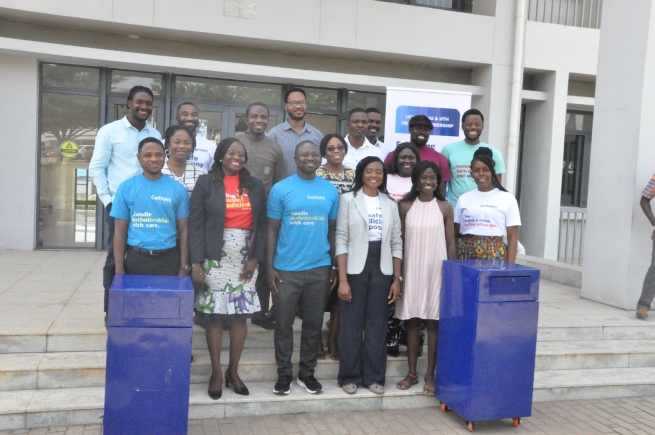The Environmental Protection Agency (EPA) has expressed serious concerns about improper waste disposal practices in hospitals across the Volta Region.
The agency noted that sharps and blood-soaked cotton were often discarded in bins meant for paper, medicines, and other non-infectious waste.
Speaking at a stakeholders’ meeting on the Take Back Unwanted Medicines (TBUM) project last Thursday, November 28, EPA Assistant Programmes Officer, Wise Cosmos Dargbey highlighted the potential hazards of such practices.
Take Back Unwanted Medicines (TBUM) Project
The TBUM project, initiated by the Food and Drugs Authority (FDA), aims to retrieve unused and expired medicines from consumers and ensure their safe disposal in line with the Public Health Act. The initiative, supported by local pharmacies, also seeks to integrate sustainability into the lifecycle of pharmaceutical products in Ghana.
Mr. Dargbey underscored the dangers of improper waste disposal, emphasising its risks not only to those who handle the waste but also to the general public.
“For instance,” he explained, “wastes, including unused medicines, wrongfully disposed often end up in water bodies and in the soil, posing dangers to animals, plants, aquatic life, and, for that matter, the public.”
He urged hospital management to prioritise waste segregation as part of their broader public health responsibilities.
Project leadership and goals
The TBUM Project Lead, Dr. Cornelius Dodoo, outlined the initiative’s implementation, which is being jointly carried out by the University College London Hospitals NHS Trust, the University of Health and Allied Sciences (UHAS), and the Ho Teaching Hospital. The project is supported by the Commonwealth Pharmacists Association and Global Health Partnerships in the UK.
Dr. Dodoo stated that the project employs a “one-health” approach to address antimicrobial resistance (AMR), focusing on the interconnected health of the environment, humans, and animals.
As part of the initiative, 15 new bins have been procured and will be strategically placed in hospitals and pharmacies.
“After building the capacity of the Ho Teaching Hospital for some time, we are now working with the Volta Regional Hospital in Hohoe, Ho Municipal Hospital, Ketu South Municipal Hospital in Aflao, and Margaret Marquart Hospital in Kpando,” Dr. Dodoo informed stakeholders.
The project’s stakeholders expressed optimism about its potential to improve waste management practices and enhance public health in the region.

